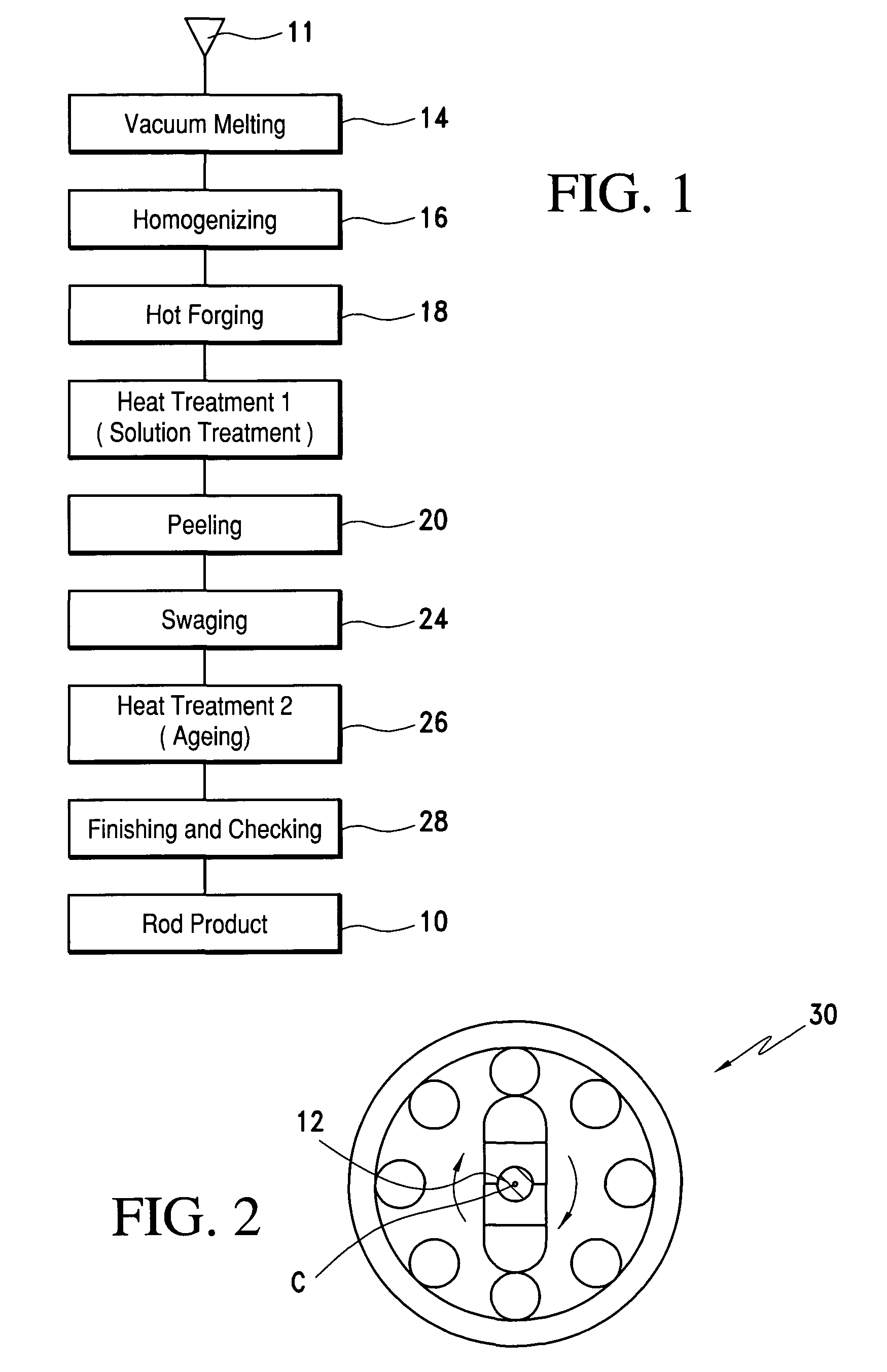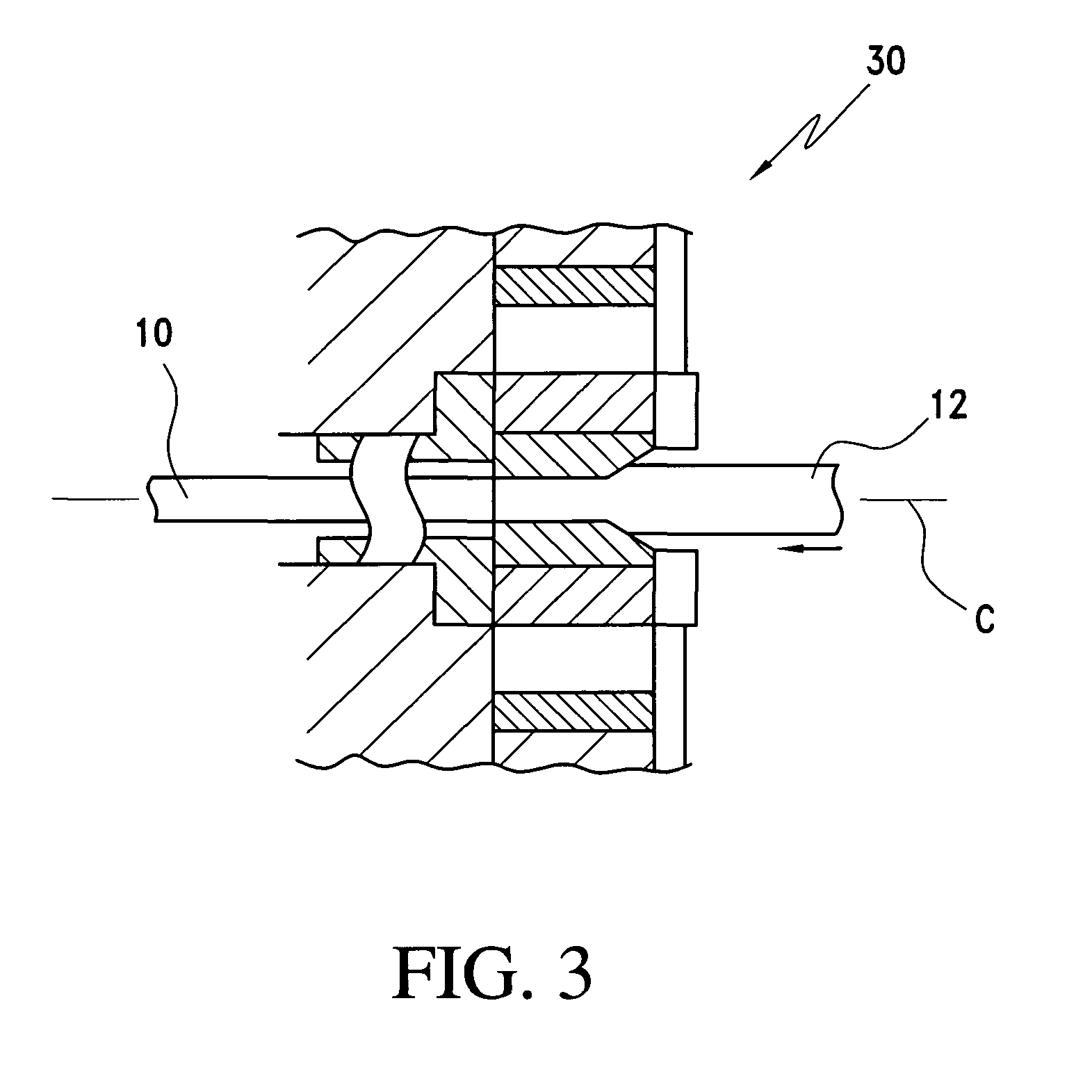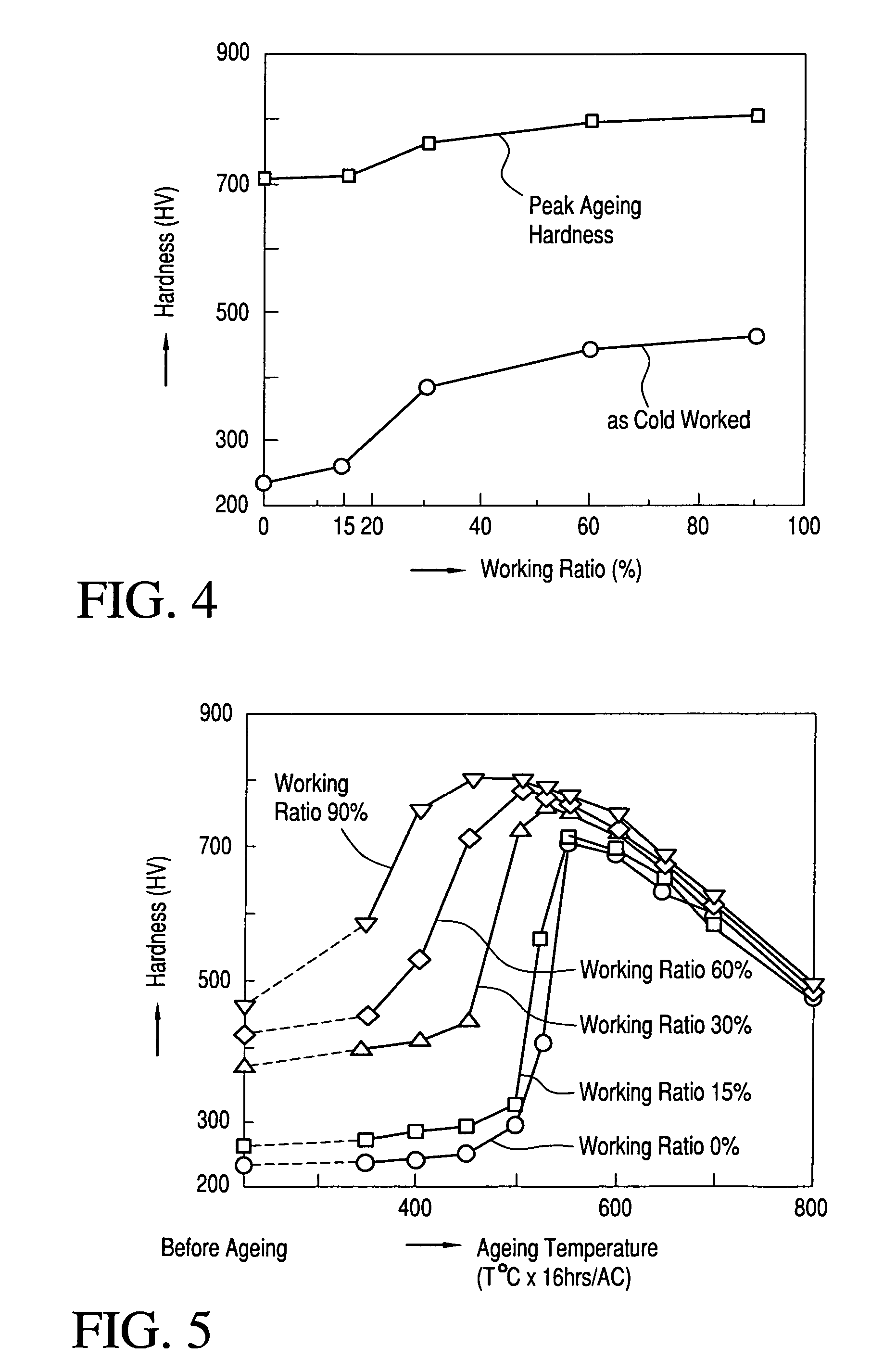Nonmagnetic high-hardness alloy
a high-hardness alloy and non-magnetic technology, applied in the direction of suction cleaners, cleaning equipments, chemistry apparatuses and processes, etc., can solve the problems of high corrosion resistance and high hardness, insufficient wear resistance, and insufficient hardness or corrosion resistance. , to achieve the effect of excellent corrosion resistan
- Summary
- Abstract
- Description
- Claims
- Application Information
AI Technical Summary
Benefits of technology
Problems solved by technology
Method used
Image
Examples
experiment example 1
[0056]Tables 1 and 2 show the chemical composition (wt %) of each of the materials employed for verification tests conducted by us. Each of our Developed Alloys 1 to 20 corresponds to the rod 10, Comparative Materials A and B correspond to SUS304 and Comparative Materials G and H correspond to SUH660. Comparative Materials I and J are alloys having a higher phosphorus content than our Developed Alloys and Comparative Materials K and L are alloys having a higher sulfuric content.
[0057]Tables 4 and 5 show data for samples formed from our Developed Alloys 1 to 20 and Comparative Materials A to I and K by the steps shown in FIG. 1, including hardness as determined in accordance with JIS Z 2244, corrosion resistance as determined by a salt spray test in accordance with JIS Z 2371 and magnetic permeability μ in a magnetic field having a strength of 100 Oe (oersteds). As is obvious from Tables 4 and 5, all of our Developed Alloys 1 to 20 showed a substantial improvement in hardness by plas...
experiment example 2
[0058]Description will now be made of an experiment conducted by us to determine the relations between working rate and hardness (HV) and between ageing conditions and hardness (HV).
Conditions of the Experiment
(a) Ageing Treatment:
[0059]The ageing of each material was performed by holding it at a temperature of 350 to 800° C. for 16 hours in a furnace in air atmosphere and allowing air cooling.
(b) Testpiece:
[0060]Five test pieces of our Developed Alloy 1 were each prepared by swaging rods thereof having a diameter of 65 mm with working rate of 0%, 15%, 30%, 60% or 90%. Their test pieces were subjected to the ageing treatment described above.
(c) Hardness Testing:
[0061]Each test piece had its hardness examined by a Vickers hardness tester in accordance with JIS Z2244.
[0062]FIG. 4 shows the hardness of each test piece depending on the working rate. Each symbol ο indicates the hardness of the material as cold rolled and each symbol □ indicates the peak ageing hardness of the material. T...
PUM
 Login to View More
Login to View More Abstract
Description
Claims
Application Information
 Login to View More
Login to View More - R&D
- Intellectual Property
- Life Sciences
- Materials
- Tech Scout
- Unparalleled Data Quality
- Higher Quality Content
- 60% Fewer Hallucinations
Browse by: Latest US Patents, China's latest patents, Technical Efficacy Thesaurus, Application Domain, Technology Topic, Popular Technical Reports.
© 2025 PatSnap. All rights reserved.Legal|Privacy policy|Modern Slavery Act Transparency Statement|Sitemap|About US| Contact US: help@patsnap.com



